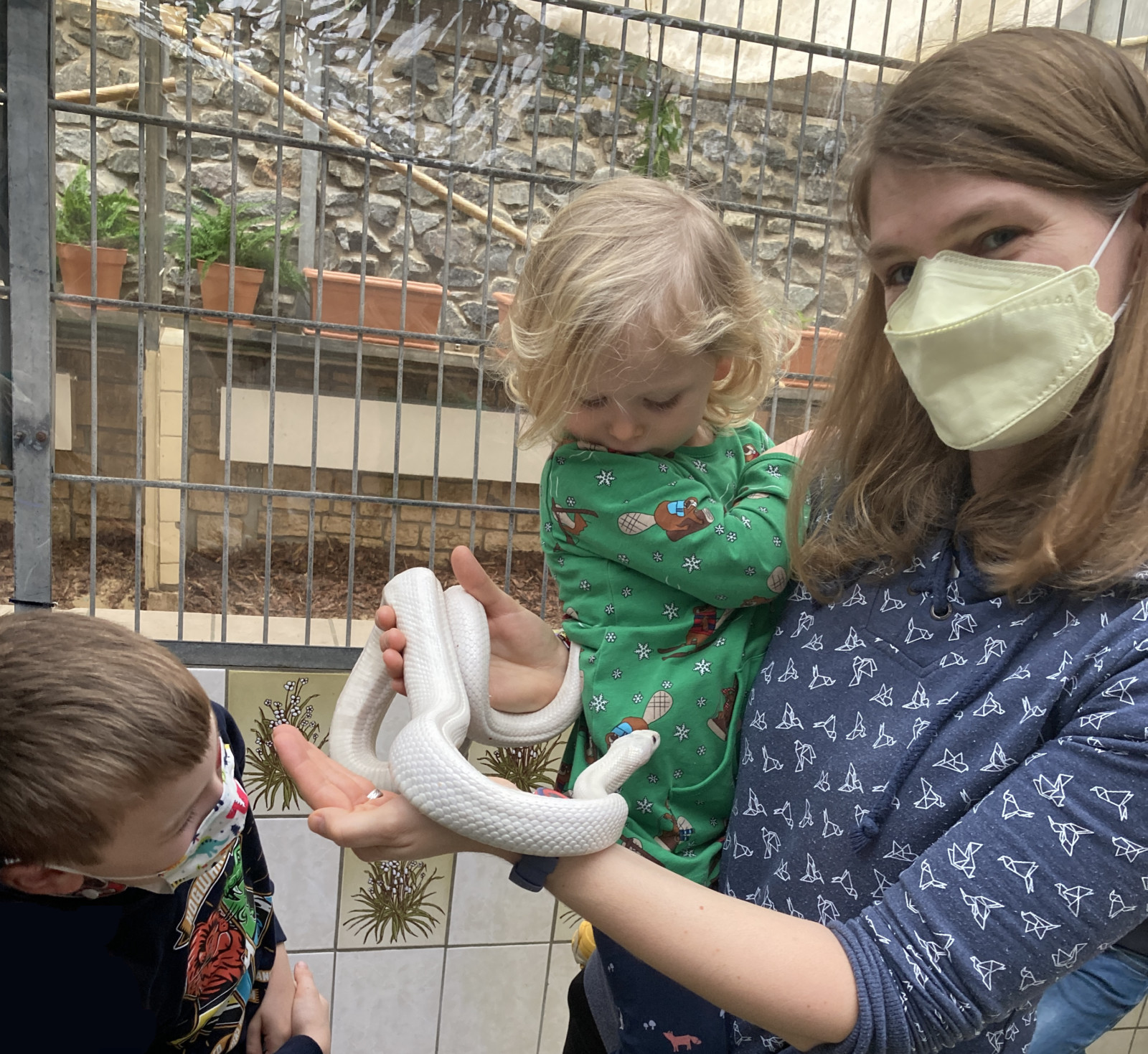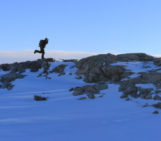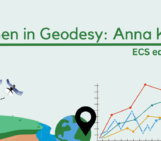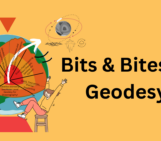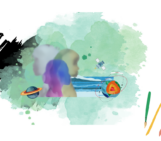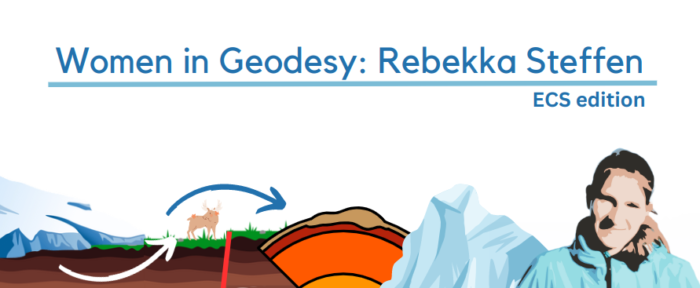
As you might know, after our blog post on women in the history of Geodesy last month, we turned the spotlight to more recent influential women in geodesy, and this time we would like to give the spot to an early career scientist, more specifically to our co-ECS representative and the Outstanding Early Career Scientist Awardee of this year, Rebekka Steffen.
Her answers were very inspirational to us and we are hoping that they will create the same inspiration for you, encourage young women and girls to study STEM, and support momademias. If you are ready, let’s hear what she is saying!
1) Would you like to share your thoughts about what being a woman in science means to you?
For me, women can be as good scientists as men, and it was nothing special for me for a long time. I was lucky to have had a few supporting teachers in high school and during my undergraduate and graduate studies. Those didn’t make a difference between women and men or girls and boys. But I feel honoured and lucky to have had such a good experience. I never thought that it is special that I’m a woman in science, but when I entered the post-undergraduate world and especially the geodesy and geodynamics world, most senior researchers are male and then you see that being a woman in (geo-)science is still something special, but let’s hope that the coming generations experience a well-balanced scientific world.
2) Was there an influential woman in your life (both inside the family and outside the family) who impacted you in a way to become a scientist?
There are indeed a few women who have influenced me in what I’m doing today, not only in the way of becoming a scientist but also by showing me that it is possible to have both a job you like and kids. My mum worked as a software engineer while raising me and my brothers, together with my dad. This was normal in the German Democratic Republic and so it was clear to me that whatever I do in the future, I want to have a job I like, and I want to have kids. Besides this, there was my geography teacher from high school who introduced me to geology, and this is when I started to read scientific articles in German about plate tectonics, rocks, and volcanoes. So, she grabbed my interest in geoscience. But even then, I never thought about becoming a scientist, but my interest inspired my dad to convince me to study geophysics (and not mathematics). 😉 And there I had an excellent teacher, Corinna Kroner, who supported me and gave me small research projects. So, I think it is her together with my dad who impacted me the most to become a scientist.
3) You’re one of the Outstanding ECS awardees. We would like to hear a bit about your studies and what’s coming next.
I work on the interaction of ice-mass changes with the solid Earth. This covers a range of topics and disciplines (like geodesy, geodynamics, and cryosphere). Initially, I focused quite a lot on the reactivation of faults due to changes in the ice mass, thus glacially triggered earthquakes. This involves geodynamic modelling of the process (known as glacial isostatic adjustment, GIA) and looking at changes in the crustal stresses. Meanwhile, I focus more on developing the GIA models to make them better and incorporate realistic Earth structure (e.g., depth of the crust-mantle boundary, lithospheric thickness). These estimates come sometimes from gravity studies, where I focused a lot on Greenland. The new GIA models will also provide better estimates of the vertical and horizontal velocity fields, necessary to study sea-level change but also for upcoming releases of the International Terrestrial Reference Frame. This work is currently supported by a project grant from the Swedish National Space Agency (Rymdstyrelsen) and will involve some GRACE/GRACE-FO data analysis as well. Once this is finished, I will contribute further to the development of GNSS velocity models for Europe and other parts of the world besides my work on GIA.
4) Can you give us some names of women in science (dead or alive) who inspire you?
I never had any role model on my way to becoming a scientist, but Isabella Velicogna is a geodesist who inspires me. She is also a mother, and her husband is a scientist in the same research field as well. And it is amazing what she has achieved, including having a family far away from home.
Outside of Geodesy, it is Joana Moscoso who inspires me. She co-founded “Native Scientists”, a very important contribution to the education of kids in science, especially for those that speak a different language than what is spoken in their country where they are living.
5) What message do you want to pass on to women and girls who want to pursue a career in science, more specifically in geodesy? Maybe a comment on how we can make science more accessible to young women and girls?
Keep going and try to find people who are in similar situations or have similar interests. The world of science is much easier to handle when you are not alone, and this is especially important for girls and young women. Otherwise, we have to work on the problem that we lose too many talented girls and young women at some point in their careers. We have to support them already in high school and tell them that they can focus on STEM subjects in the same way as boys if they like it. This can give us a higher number of girls studying more scientific disciplines, like geoscience or physics. But I think we lose quite a lot of very talented female scientists when it comes to building a family. It is still very difficult to combine the world of academia with kids, and interestingly this is mostly a problem for female scientists only. We have to create a better infrastructure to support academic moms as it is we as moms who educate and inspire the next generation by showing our kids what is possible.
We would like to thank Rebekka for the time to answer our questions.
And we have even more female geodesists who received the Outstanding Early Career Scientists Award for the Geodesy division, so more interviews to come…

